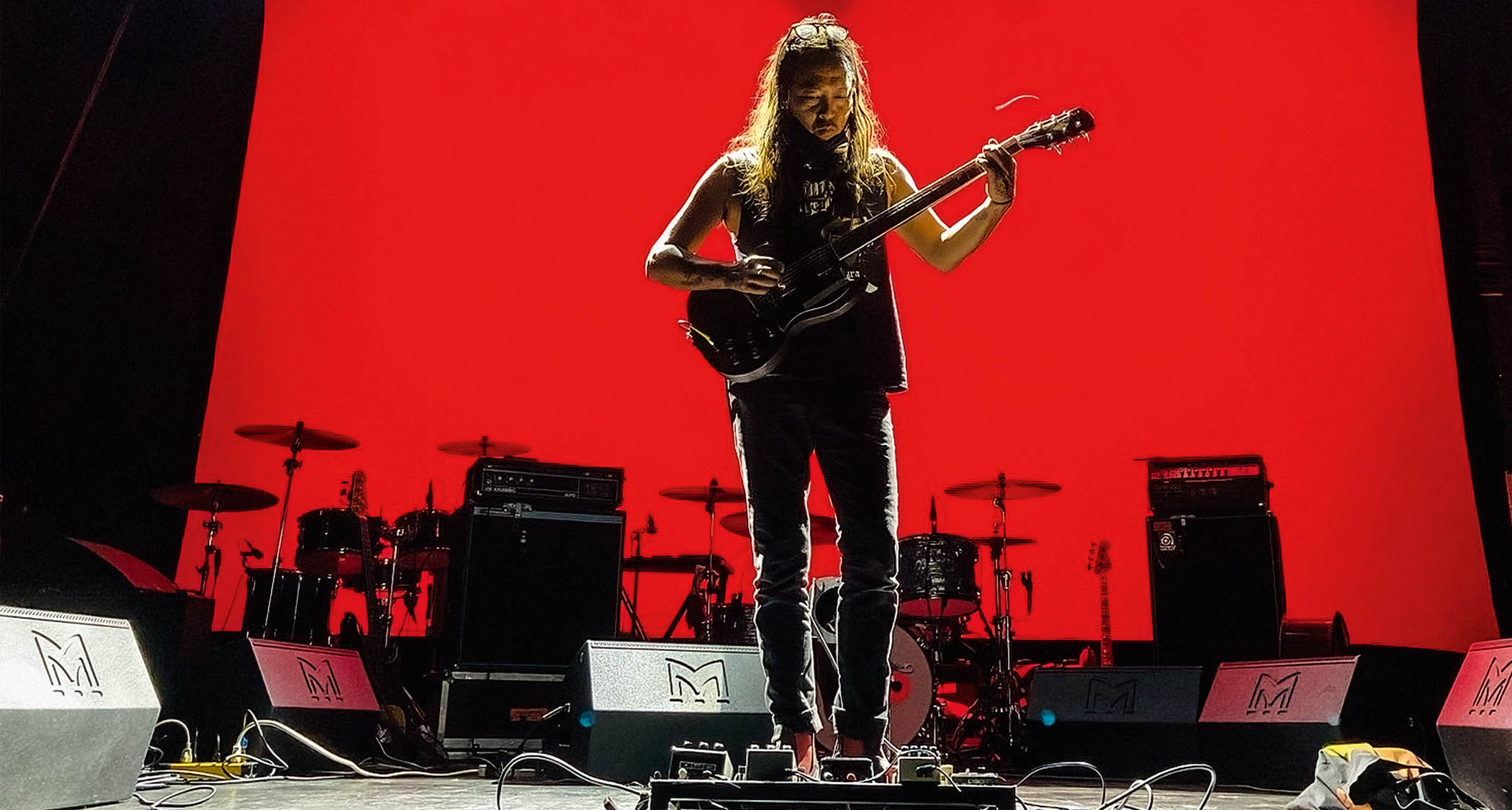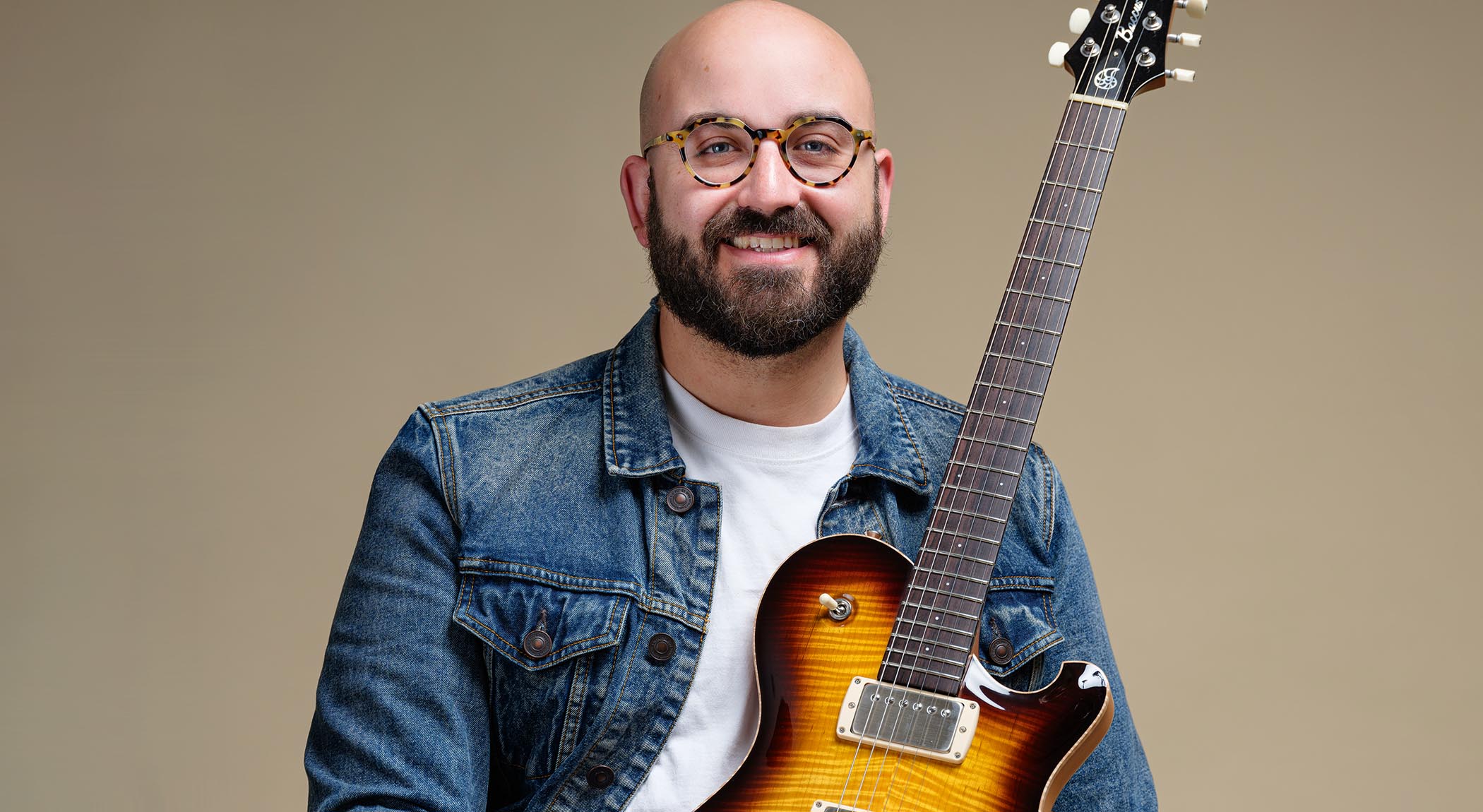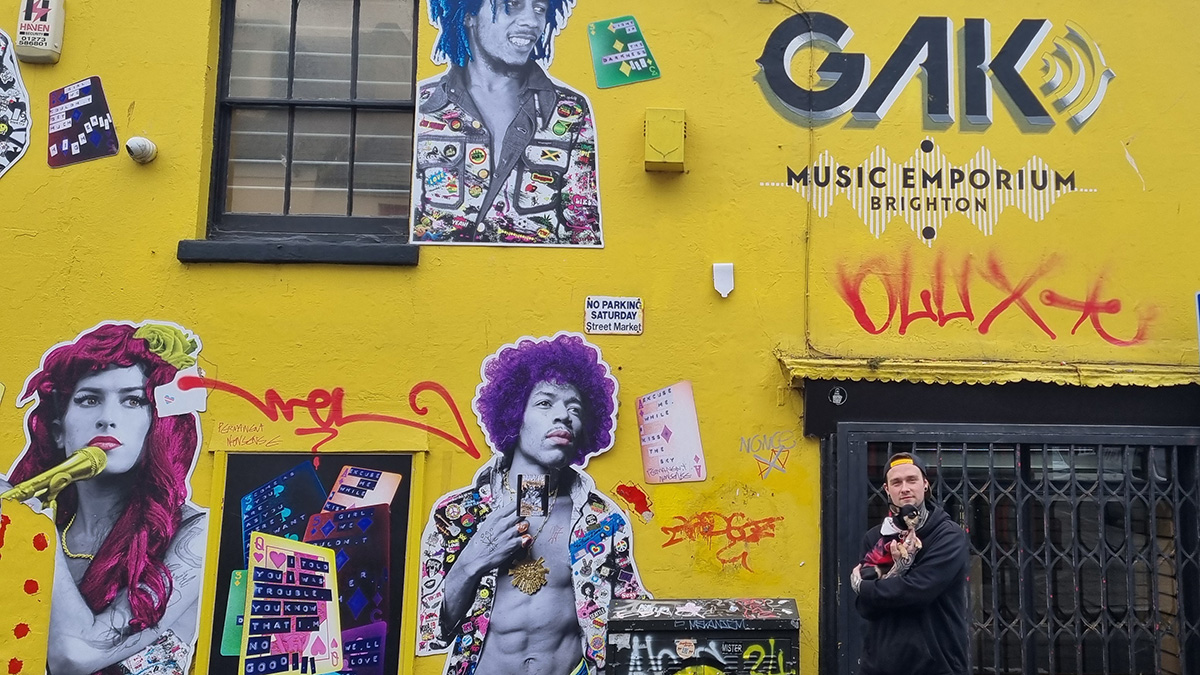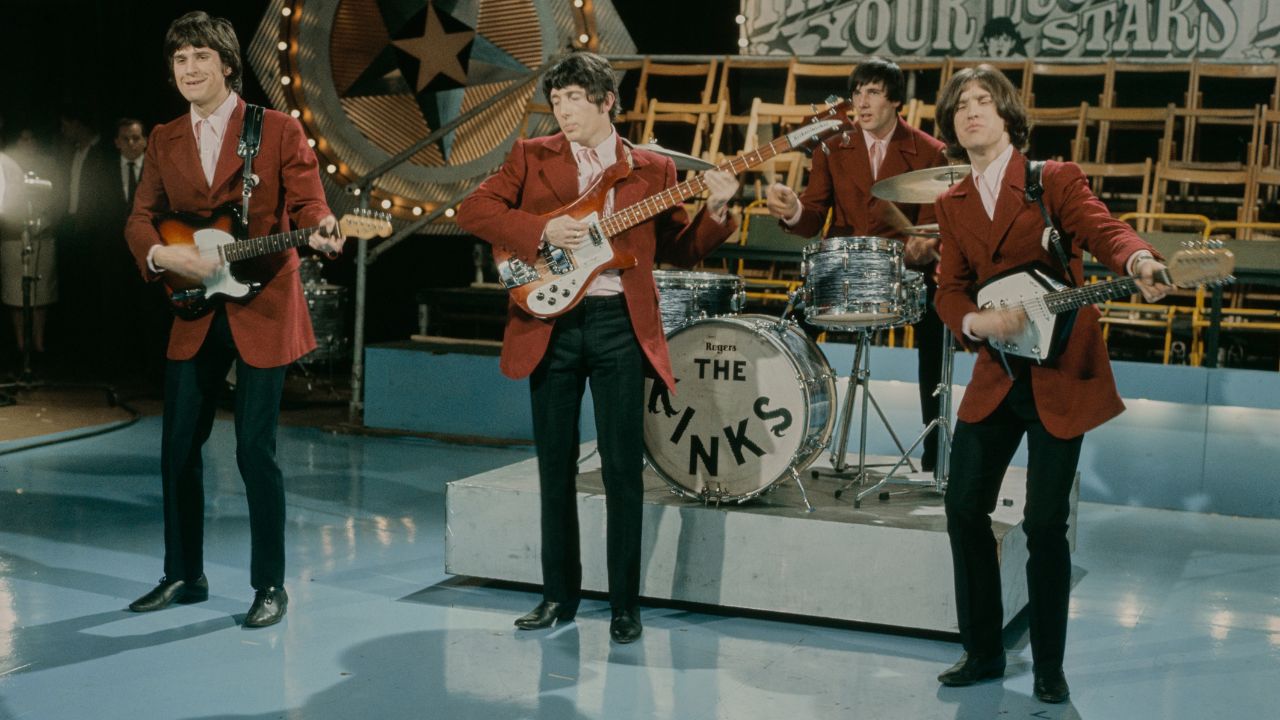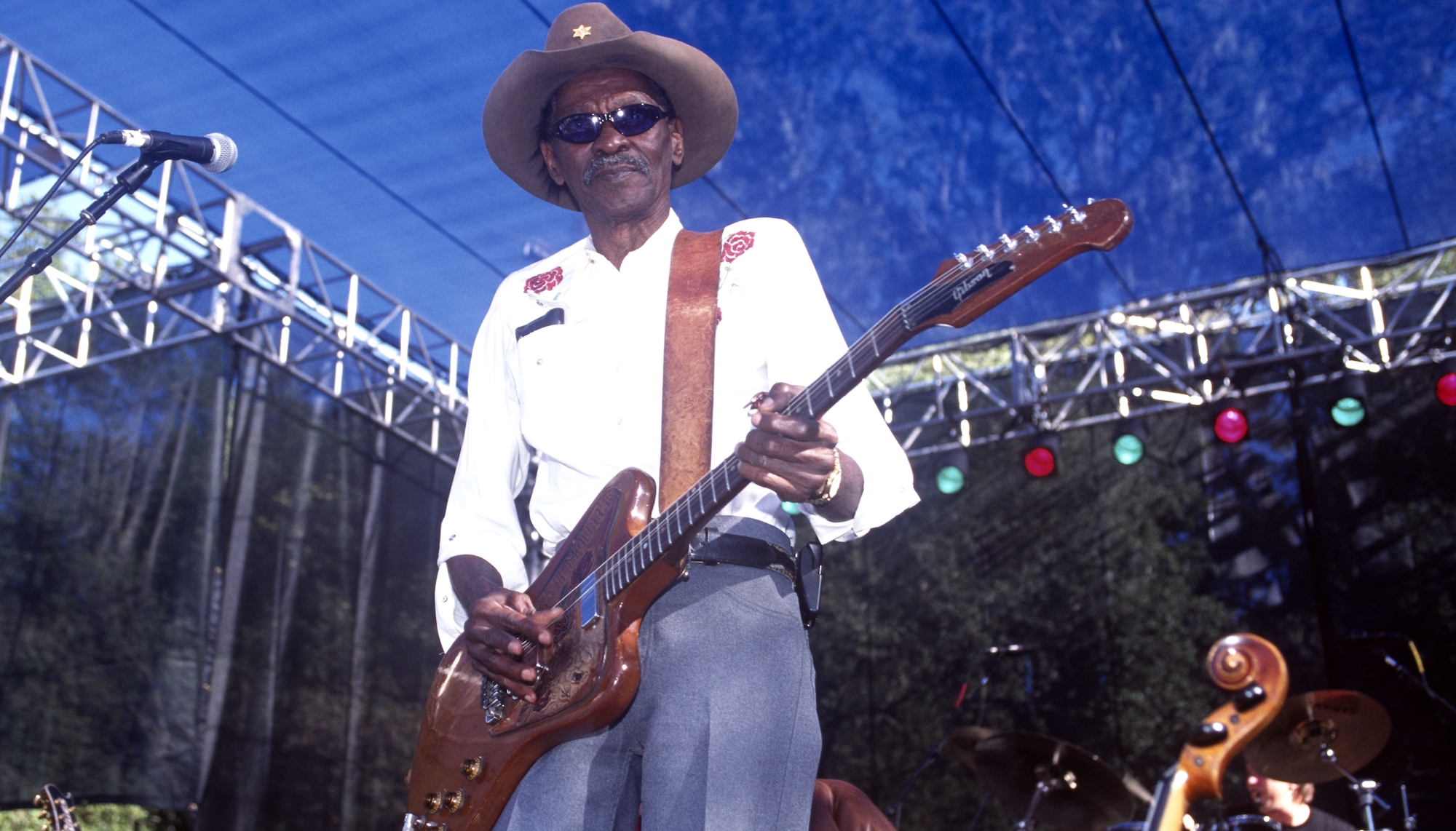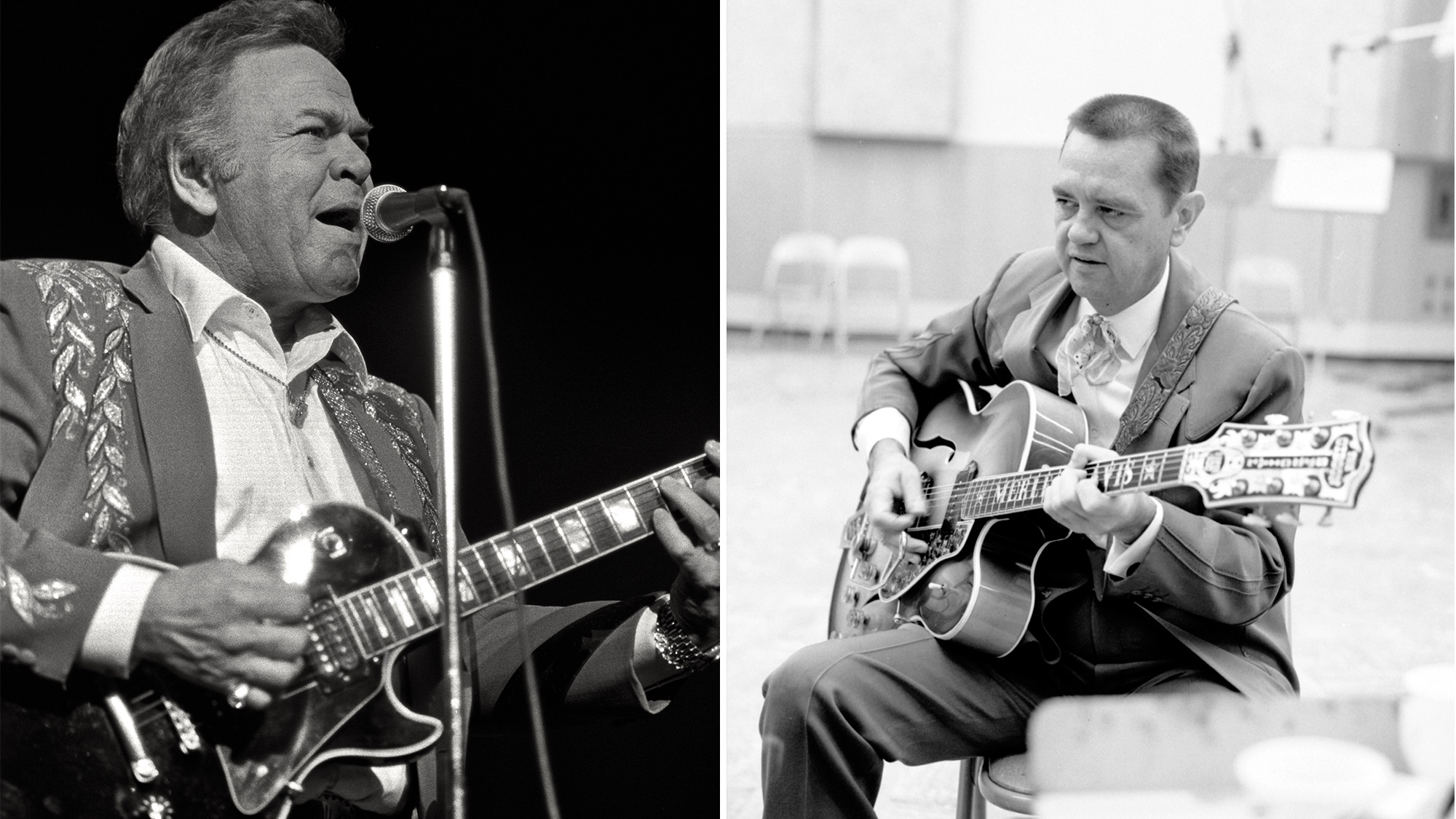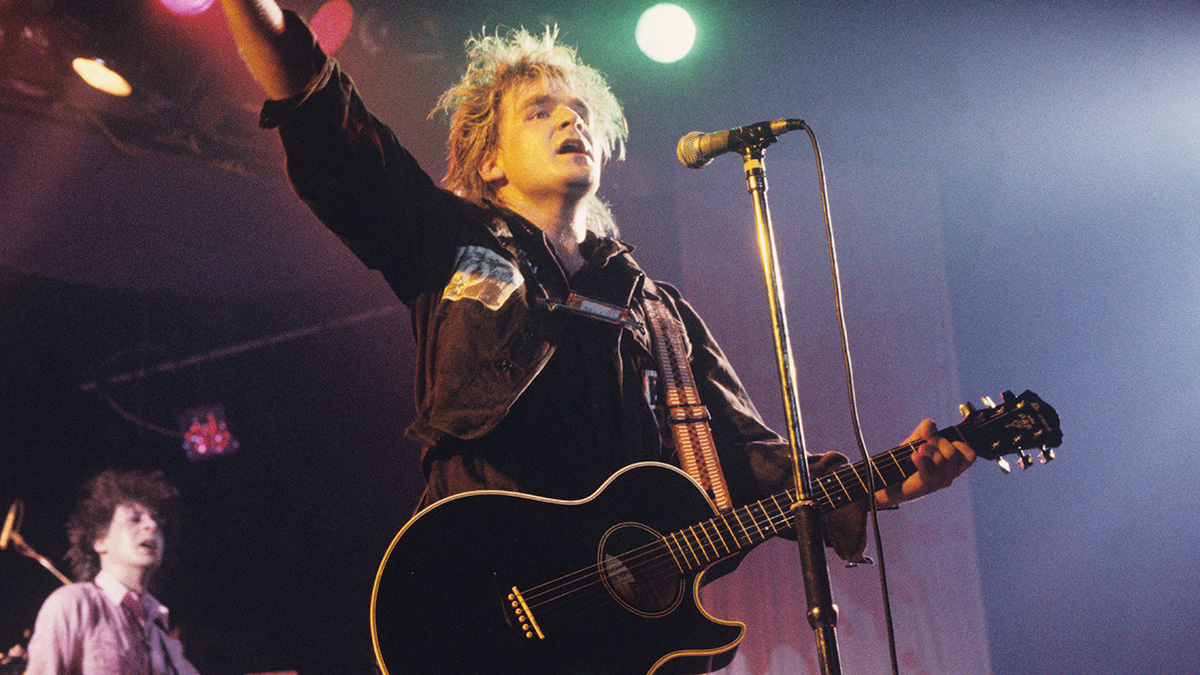Dear Guitar Hero: Steve Morse
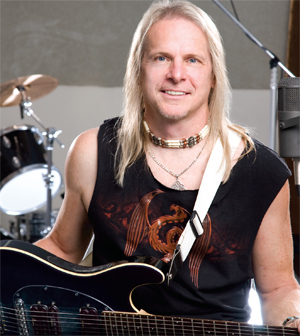
He’s a stylistic master of the guitar who has been a member of classic rock acts that include Kansas and Deep Purple. But what Guitar World readers really want to know is…
If you could put together the ultimate five-piece rock supergroup, who would be in the band? You can choose from musicians living or dead. —Phil Murray
Oh, boy, this is very difficult. On drums, I’d say John Bonham. Jeff Beck and Rod Stewart made such a great team, so I’d put them on guitar and vocals. On bass, I think Jack Bruce could be great, plus he has a great singing voice. And [keyboardist] Chuck Leavell from the Allman Brothers.
When you first started playing with Deep Purple as the replacement for Ritchie Blackmore, did the fans give you a hard time? —Rita MacDowell
Yes, but I knew what to expect. I knew that even if people were giving me the benefit of the doubt, they would still be disappointed to not see the five original guys who did “Smoke on the Water.” But that doesn’t mean they should throw bottles! One of them hit [keyboardist] Jon Lord, who was right behind me. When you have lights in your face, you only see something the moment before it gets to you. I ducked at the last second, and the bottle hit Jon. That sucked really bad. This was during our very first tour. But we didn’t have any more of that after we got the first album out [1996’s Purpendicular].
You haven’t recorded an album with Deep Purple since Rapture of the Deep in 2005. Do you guys have any plans to do a new album? —Larry Elliott
Yes, we’ve been kickin’ that around. We keep looking for that big open hole in the schedule, but management keeps plugging it up with tours. That’s the moneymaking part of the business. Making albums is pretty much a charity event; you still need to do the business that pays the bills. Records are interesting for the band to make and for the fans to hear, but nowadays it has almost nothing to do with making a living.
Get The Pick Newsletter
All the latest guitar news, interviews, lessons, reviews, deals and more, direct to your inbox!
What was it like playing with Kansas back in the Eighties? Did you have to play differently than with the Dixie Dregs [Morse’s longrunning jazz fusion band]? —Ned Tobolowsky
Yeah, I did but certainly not too differently. I immediately identified with [Kansas guitarist] Kerry Livgren’s writing. I thought, Hey, this guy is coming from the same direction that I am. I became friends with the band, and that’s really how I ended up working with them. It was a struggle to figure out what parts I should play. At the time that I joined, we didn’t have an extra violinist, and Kerry used to switch between playing keyboards and guitar. Plus, we had Rich Williams, the great guitar player who’s always been in the band. So I was kind of struggling. It was like, What should I play here? Do I take the solo? Sometimes I would play violin lines on the guitar, and sometimes I was playing things like a keyboard arpeggio, or something that Kerry wouldn’t have done on guitar.
You just put out a new Steve Morse Band album, Out Standing in Their Field. Do you think your playing on the record is more rock oriented because you’ve been doing all the Deep Purple stuff? —Nancy Geraghty
Good question. Yeah, I think the first track, “Name Dropping,” has that “I’ve been playing in a rock band for a long time” feeling. But I intentionally try to change the channel quite a bit during the course of a record. So there’s rock stuff, a jazz fusion–style song [“Unnamed Sources”], a classical guitar piece [“Baroque ’n Dreams”] and a bluegrass-type piece [“John Deere Letter”].
When you were in high school, did you ever carry around a guitar to try and pick up girls? —Gus Ducommun
No, no, no! Everything I did in music had the predictable effect of repelling girls. I liked girls, but when it came to the guitar, I was just like a guy who puts a bigger engine in his car: it’s not something you do for girls; it’s something you do so you can go fast and enjoy the rush. And to me, all the music I played as a teenager was about the adrenaline rush. I loved playing fast. I loved thrashing what they called “acid rock” and the stuff that led to Led Zeppelin. It was a power thing; it was not an “I can’t figure out how to talk to girls” thing. In Augusta, Georgia, the town where we were playing in the Sixties, girls hated that kind of music. They only liked stuff with horns and be-bop moves, with three or four singers dressed in the same suits dancing back and forth.
Can you tell me what was the first song you learned that really challenged you as a guitar player? —Doris Duke
Chuck Berry’s intro to “Johnny B. Goode.” “Johnny B. Goode” also sounded just like [Berry’s hits] “Maybelline” and “Sweet Sixteen.” They were all the same song, but it was about being able to make them swing. I just loved that. The other thing that really thrilled me was when I was able to play some kind of facsimile of the solo in [the Kinks’] “All Day and All of the Night.”
If you were stuck in a guitar version of Groundhog Day and had to play one of your songs over and over, which one would it be? —Al Ruggiero
Whoa! What a great question. Well, something where I could solo and try different things. One of the more epic tunes—the longer the better. Something like “Travels of Marco Polo,” or “Hereafter,” which is challenging to play and has a lot of room for improvisation.
What is your favorite Ritchie Blackmore solo? —John Pistone
The “Highway Star” solo is classic. It’s got the power section, the fast picking part and the melodic section in the front. And the progression is interesting. We start with that song every night, and you don’t just pick up a guitar, walk onstage and play it—you’ve got to be warmed up so you can play it in a relaxed way. You can’t be struggling at all.
If you walked into a room with Jimi Hendrix, Les Paul, Stevie Ray Vaughan and Jaco Pastorius, who would you talk to first, and what would you say? —Nick Kirby
It would be Jaco, because he was a friend of mine. I’d say, “What happened that night?” I was getting ready to do a show, and they said Jaco was there to see me. I said, “Well, bring him back.” They said, “He can’t come in. You’ll have to walk outside to talk to him.” It was a terrible time in his life. I gave him some money. Shortly thereafter, he got mugged, or attacked, and he died. We were old friends. So that’s the first thing I would want to know: “Whatever happened, and how did you get there? Are you doing okay now?”
I read that you’re also a pilot. Have you ever flown yourself to a gig and had something strange happen on the way? —Sonny Madsen
Yeah, decades ago. I was flying from San Francisco to Salt Lake City. We were in my light twin, and even though it did have de-icing boots, we had a problem because a big winter storm just sort of appeared. I was getting ready to do the approach, and I lost one of the vacuum pumps that maintains the gyroscope instruments—the things that tell you up from down. It was nightfall, and we were getting ice. We were running out of options, so I decided to do the approach and go in a little fast. It worked out fine, and it was a great learning experience. It was only when I thought about it afterward that I got nervous.
You play rock, country, jazz, fusion, classical and everything else. Did you ever want to become a studio player? —Richard Gazzo
Sure, I think every guitarist does when they read the credits on albums. Duane Allman was a studio guitar player, and he played on lots of different things before and during his time with the Allman Brothers. And, of course, his session with Clapton [Derek and the Dominos] sounded amazing. It seems like the coolest thing in the world. However, since I’ve become good friends with [Toto’s] Steve Lukather [who is an accomplished session player] and experienced a little bit of it myself, I’ve realized it’s a different world. Being a session guitarist is different than I would have ever imagined. From an employment standpoint, it sounds fantastic. But for somebody who is used to having control of his own musical direction, it can be frustrating.
“Live right up to the last breath and stay positive about the world, your family and the environment you live in”: Mike Peters, frontman of the Welsh band, The Alarm, has died aged 66
“Muddy Waters and BB King, I knew ’em before they passed away, and they told me, ‘Man, if you outlive me, just try to keep the blues alive’”: Buddy Guy has officially retired from touring – but he’s back on the big screen in Michael B. Jordan’s Sinners
